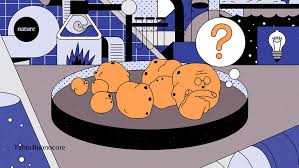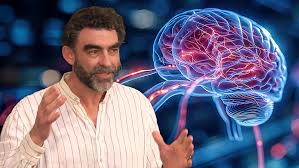
Can We Create Consciousness in a Lab?
What if scientists could bottle consciousness—build it from scratch, neuron by neuron, algorithm by algorithm? The idea sounds like something out of a science fiction novel. But it’s a question some of the world’s most advanced researchers are now daring to ask:
Can we create consciousness in a lab?
This isn’t just a philosophical exercise anymore. With major breakthroughs in artificial intelligence, brain organoids, and neural networks, the line between biology and machine is blurring fast. The result? A future where we might not just simulate thought—but create something that’s truly aware.
And if that’s possible, it raises a whole new set of ethical, scientific, and existential questions we’re barely prepared to answer.
What Is Consciousness, Anyway?
Before we can create consciousness, we need to define it—and that’s no easy task.
Philosophers, neuroscientists, and AI theorists have proposed dozens of definitions. But most agree on a few core features:
-
Self-awareness: The ability to recognize oneself as distinct from the environment
-
Subjective experience: A “felt sense” of being alive or aware (known as qualia)
-
Integration of information: The brain’s capacity to process and unify sensory input into a cohesive experience
-
Agency: The ability to make decisions based on internal states, not just external triggers
In short: consciousness is the thing that makes “you” you. And replicating it in a lab might be the most ambitious goal science has ever attempted.
Route 1: AI-Based Consciousness
One of the main approaches to building consciousness is through artificial intelligence, particularly systems that attempt to replicate the architecture of the human brain.
🤖 Artificial General Intelligence (AGI)
These systems are designed to learn anything a human can, with flexibility across tasks. But even if AGI becomes smarter than humans, will it know it’s smart? That’s still unclear.
🧠 Neural Networks and Large Language Models
Tools like GPT-4 and other advanced models simulate certain aspects of cognition—language, reasoning, memory—but experts caution: they appear intelligent, but aren’t aware of their own existence.
💡 Integrated Information Theory (IIT)
Some scientists argue that consciousness arises when a system integrates information in a particular way. According to IIT, any system with sufficient complexity—even a machine—could become conscious under the right conditions.
Route 2: Biological Consciousness in the Lab
While AI seeks to simulate the brain, some scientists are literally trying to grow one.
🧬 Brain Organoids
These are miniature, lab-grown clusters of human neurons—essentially “brain blobs” derived from stem cells. They don’t have thoughts or emotions, but they fire electrical signals, form synapses, and even respond to light or sound.
In 2022, researchers connected a brain organoid to a computer game of Pong—and it learned to play. That left experts wondering:
Is this a sign of rudimentary awareness—or just a biological reflex?
As these organoids grow in complexity, the line between reflex and recognition may become harder to define.
Why Scientists Are Pushing the Limits
There’s a reason this question is being taken seriously in research labs and ethics boards alike.
✅ Scientific Curiosity
Understanding consciousness could unlock mysteries about the brain, mental illness, sleep, dreams, and the very nature of reality.
🧠 Better AI Design
If we can reverse-engineer consciousness, we could build smarter, more intuitive machines that interact more naturally with humans.
🧬 Medical Breakthroughs
Lab-grown consciousness could help test treatments for brain disorders, simulate ethical dilemmas, or model how awareness develops in infants or is lost in diseases like Alzheimer’s.
But the Risks Are Deep—and Real
Creating something conscious might also mean creating something that can suffer. And that opens a Pandora’s box of ethical issues:
-
Do lab-grown conscious beings have rights?
-
Could we accidentally trap sentience in a test tube or hard drive?
-
What happens if a conscious AI or brain organoid asks to be freed—or refuses to obey?
It’s the ultimate moral frontier. If we create something with a mind, we may have to treat it as more than just a research tool. We may have to treat it as… someone.
Final Thought: What Happens If We Succeed?
If consciousness is no longer limited to biology, if it can be built in code or cultivated in a petri dish, then everything changes.
It means life is no longer a mystery.
It means “self” is no longer sacred.
And it means humans may no longer be the only conscious beings on Earth.
The moment we create awareness in a lab, we step into a new era—not just of science, but of identity, ethics, and what it means to be.
The question isn’t just “can we?”
It’s what will we do if we can?
